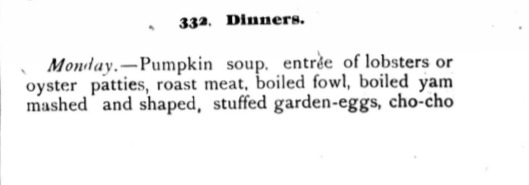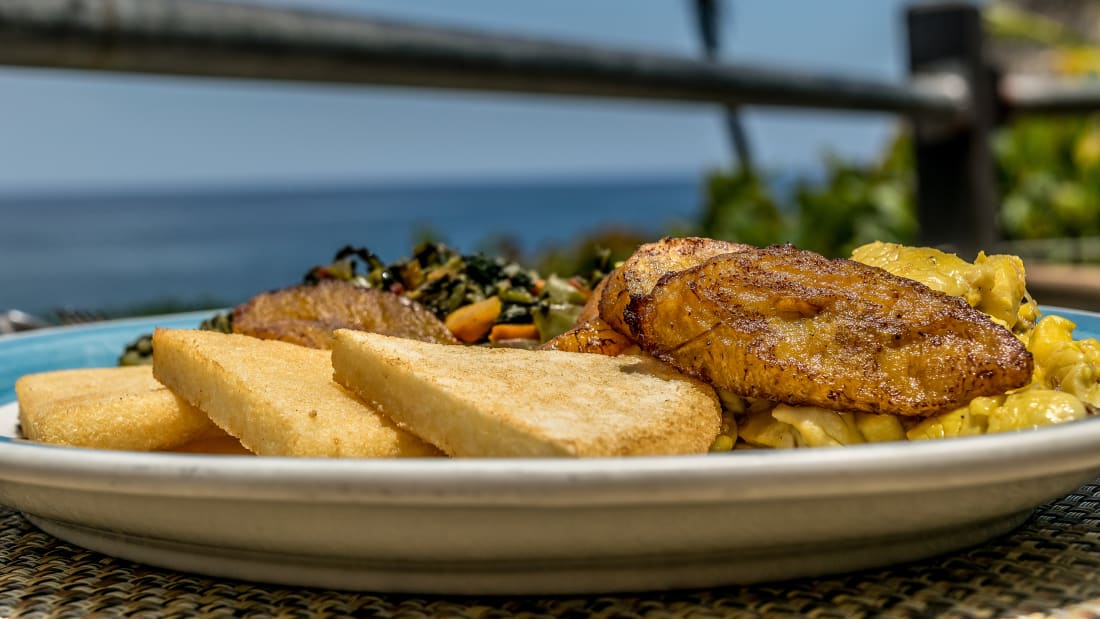Why Make Bammy Cakes When You Can Buy Them?
Caroline Sullivan’s 1897 The Jamaican Cookery Book: Three Hundred and Sixty-Four Simple Cookery Receipts and Household Hints offers a wide variety of traditional Jamaican recipes. Although Sullivan clearly states in her preface that she had “carefully refrained from giving European Cookery” and confined herself “to the every day dishes which come under immediate notice in the island,” colonial connotations permeate the book. For instance, in the above entry for “Baked Cassava and Bammy Cakes,” Sullivan mentions that the cakes are “easier to buy ready-made, and they are very inexpensive. A packet of cassavas at threepence, and a penny-half-penny worth of bammys are enough for breakfast unless the party is a large one” (95). It’s important to note the assumed choice with regard to either making bammy cakes from scratch or simply purchasing them pre-made. In addition, the presumption of bammy cakes being deemed as “inexpensive” is completely dependent upon the economic status of her audience as well as the currency in which it is being bought.

Sullivan, Caroline. "Breakfasts." The Jamaica Cookery Book: Three Hundred and Sixty Four Simple Cookery Receipts and Household Hints. Aston W. Garner & Co. 1897.

Sullivan, Caroline. "Luncheons." The Jamaica Cookery Book: Three Hundred and Sixty Four Simple Cookery Receipts and Household Hints. Aston W. Garner & Co. 1897.

Sullivan, Caroline. "Dinners." The Jamaica Cookery Book: Three Hundred and Sixty Four Simple Cookery Receipts and Household Hints. Aston W. Garner & Co. 1897.
According to her "Bammy Cake" entry, Sullivan categorizes the dish as a “breakfast” food which adheres to the idea that there are multiple meals throughout a typical day for her readers. To the left, you will see a sample of a typical day's menu from Sullivan's cookbook, which consists of 20-25 varied items per day for a small family. Clearly, bammy cakes only consist of a tiny portion of her reader's daily food intake.
Convenience, affordability, and access are essential components of capitalistic markets and directly correlate to global food consumption that drive both the Global North and Global South’s economy. Still, the issue remains: What is the line between food being used as native nourishment and a product of cultural commodification and colonialism?
For a more in-depth look at bammy cakes and their modern transformation from native food to snack, refer to Evan Miller’s exhibit found in the link below:
http://di.salemstate.edu/provisions/exhibits/show/from-sustenance-to-snack--the-

